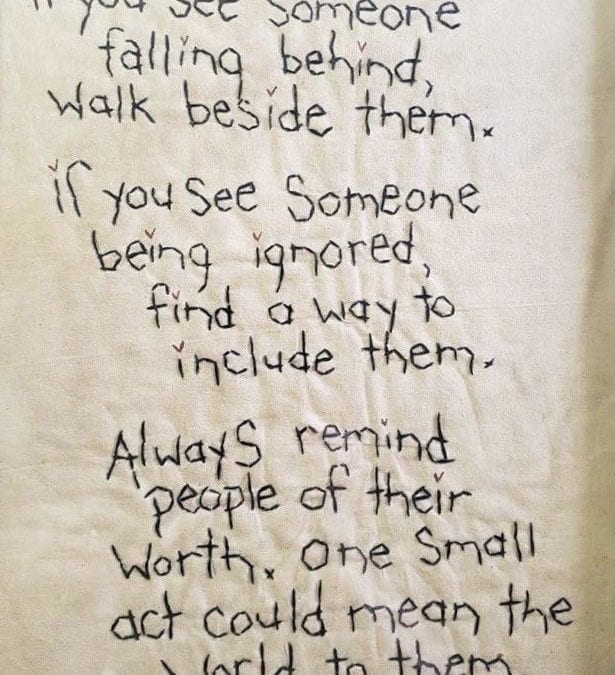Kia ora e te whanau
This coming Sunday is my last with St Andrews on The Terrace as a stated supply minister. I will see you occasionally in future. Thank you for the opportunity to spend time with you. I have re-met old friends and made new friends which is important at any time, and for me particularly important as I’m back in Aotearoa after many years away, still finding my place here, and with the disruption of the pandemic. I have appreciated the support offered and your patience in my first venture back into the church after ten years.
This week I have reflected on Dorcas. As he was targeting a Greek audience, the writer of Acts, generally recognised as the gospel writer Luke, calls her Tabitha which is the Greek translation of the Aramaic Dorcas. In my reflection, I use her given name, Dorcas rather than the one changed by Luke for the purposes of growing the early church. Like Martha, who I spoke about last week, Dorcas fascinates me. One of the wonderful things about spending this time with you is that I have been drawn back into these stories I love about the early church.
When I left Canberra in December 2018 I gave hundreds of my theology books to the Lifeline Book Fair, a huge annual fundraising event in the city. I kept my collection of feminist theology, early church history, and scholarly ‘progressive’ studies of the historical Jesus. I had no intention of working in the church again because of my non-theist beliefs. I did not see how I could do so and retain my own sense of integrity and honesty. You at St Andrews have enabled me to explore what I thought was impossible. I thank you for that.
I am returning to the various historical projects on which I am collaborating with iwi and hapu, and with the National Archives, to tell stories of Māori and colonisation so far untold. My work with St Andrews has left little time for this, which along with other anti-racism work I do, is one of the ways I have found I can contribute to social justice in Aotearoa New Zealand.
Dorcas, who lived in the Mediterranean seaport of Joppa, now the suburb Jaffa in Tel Aviv, Israel, sewed for the poor and they loved her for it. That was how she lived the Jesus way. The value of such work is often overlooked because it is generally done by women and such domestic crafts have been considered marginal and unimportant. These days such crafts are receiving more acknowledgement as important work in our society and being acknowledged for their value in the art world.
During the level 4 lockdown, a small group of women friends invited me to join their Zoom stitch meetings on Sunday afternoons. They have been gathering like this for years so their warmth and inclusiveness meant the world to me. Some of the women stitch for Crafty Volunteers a registered charity with a nationwide team of volunteers who knit, sew and crochet items of clothing, blankets and other household items that they distribute through a variety of organisations to people in need. Crafty Volunteers are always looking for financial donations and materials, so if you have excess wool, blankets, fabric or thread, Crafty Volunteers would be keen to receive them. You can check out the website link above.
As I am not using the lectionary readings for this week’s gathering, some of you may be interested in reading this excellent essay by Debie Thomas based on the readings. (“Welcome the Prophet” Posted 21 June 2020).
Last, but not least, this morning my friend Ruth posted this photo on social media of words stitched on linen. Thinking of Dorcas the stitcher, my good friends here in Te Whanganui a Tara Wellington who welcomed me and who stitch for Crafty Volunteers, and Jesus’s call to love, I thought I would share it with you.
Arohanui, Niki
To view the full e-news click on this link:


